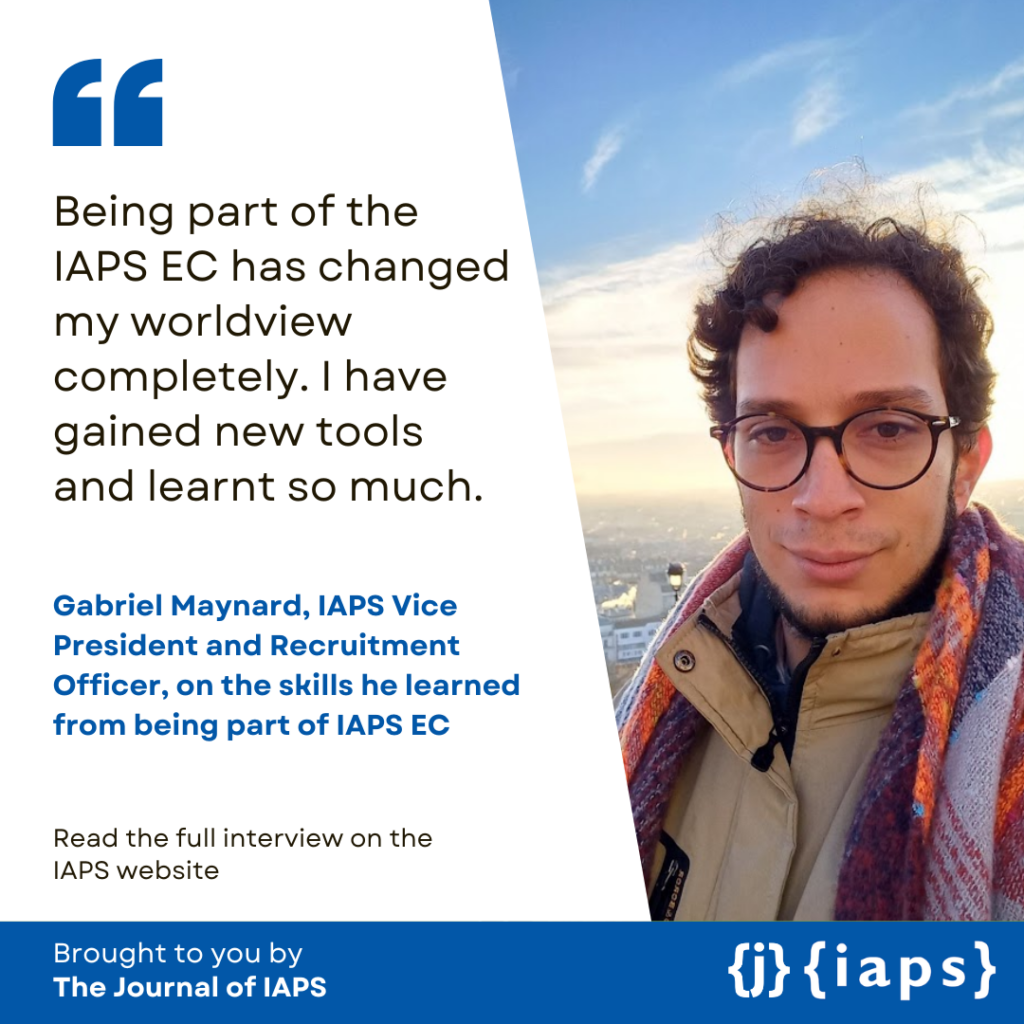The Editor-in-Chief is continuing to make their way around the EC. Read the latest interview below:

What are you currently studying?
Well, today I am not studying – I’m in the transition period between the Bachelor’s and Master’s degree programs. In the autumn, I’ll start an Erasmus Mundus Master’s in Planetary Geophysics. I would like to emphasize my career towards Environmental Physics, as that was the focus of my four year undergraduate degree course at the University of Costa Rica . It’s nice to have a break – I was overwhelmed with choice at the end of my degree. Plus, I have time for other projects, including IAPS and NC Costa Rica.
Which committee was it the most rewarding to recruit?
It’s the most rewarding to me working in the NC here in Costa Rica. Recruiting other committees in Central America and working with them to create a community, with the potential to grow is also very rewarding.
Have you been involved with the recruitment of anyone who has gone on to do anything significant in IAPS?
Well… I helped to recruit most of the current EC! There’s NC Greece. I did the process of upgrade from LCs to the current NC, and Dimitris [current IT Manager] is part of that NC; then LC Singapore – Soe [External Relations Officer]; and LC Santo Domingo – Thara [Secretary, also see jIAPS’ interview with Thara]; and NC Guatemala – Marisol [PR Manager]. Have I missed anyone? [And that’s just the people on this year’s EC! – Editor]
Which committee is the most difficult to recruit?
There’s one which we’ve devised a solution for, but they are stubborn. They want a national committee, but that would be a political statement… and then there’s the case no one talks about which is extremely difficult or impossible to recruit.
Which other tasks, apart from recruitment, have you been involved in?
I was the Data Protection Officer for half a term. It was only for a short time and it wasn’t much work. I’m also on the AC5 Council, organising meetings and trying to move further with the collaboration with IUPAP. As you know, I am Vice-President which has its set of tasks, including helping with the planning of the Mulhouse meeting and connecting with external relations. I’m helping with trying to organise another IAPS2CERN trip which is providing a challenge. There’s a financial problem with the organisation of that – it’s not one of IAPS’ major events, so it is more difficult to find sponsors who are willing to subsidise the laboratory visit [If you, dear reader, happen to be a millionaire, or know of any potential sponsors, please do get in contact with us – Editor].
Which IAPS event have you enjoyed the most?
I really enjoyed PLANCKS 2022 in Munich. It was really special to see people from the committees you have recruited participating in the competition and enjoying the event. It was very rewarding, especially seeing countries from outside Europe becoming more involved in IAPS.
PLANCKS 2022 was also the first time Costa Rica participated in person. They selected a team and entered the competition… and it’s fantastic to see it keep improving. Costa Rica participated this year too.
There were also so many activities at PLANCKS and I saw plenty of friends.
How do you convince new members to join IAPS?
Depending on the area, I say different things. If they are in Latin America, I tell them about the events we are hosting. Then there’s the grants you can apply to in IAPS. I also promote that it is beneficial to have a greater representation from their continent in IAPS, and how they can use it as a platform for future collaborations and to improve their countries. For everyone, I mention the main events IAPS organises, and then the regional engagement and planning of events too.
What are some of the skills you have learnt from being part of IAPS?
One of the benefits of IAPS has been learning management skills. I’ve learnt how to propose projects and have gained hands-on experience. Being part of the IAPS EC has changed my worldview completely. I have gained new tools and learnt so much.
On average, how many emails do you send a week relating to IAPS?
It varies a lot… maybe about ten a week. Some weeks it is only about three or five. Probably at least ten a week. This isn’t including messaging – that would go off the chart! [The Editor has just checked their email headcount and it is also at least ten IAPS emails a week]
I heard you recently completed some field work as part of your course. What was it like?
I completely like field work. You never know what is going to happen, whereas, in a lab, you have a very controlled environment. You also get to take nice pictures.
It was a comprehensive experience. Sometimes we had to wake up at 3am and get on the University transport to go to a far-off place in the country. We had to take our measuring equipment with us which weighed about 20 kg and plant the stations we were setting up. This was done to measure carbon dioxide and methane fluxes from the soil to study the interaction between soil and boundary layer in different environments. The stations were to measure Greenhouse Gases in real time. Usually it was very hot – about 30 °C – and about 97% relative humidity so we were all sweating so much.
[Here, we lapsed into a tangential discussion about snakes. The conclusion is that if you like snakes, go to Costa Rica. If you don’t, come to PLANCKS next year in Dublin.]
One funny story about the field work… we were setting up a station when we could hear a buzzing noise. We were in a field, with trees around it. The buzzing noise was getting stronger and stronger. “Let’s not panic,” said the professor, “Those are killer bees.”
“We’re going to finish setting up,” he continued, “and then run.”
He then encouraged us to start working faster. The buzzing noise was all around us, coming from all directions – we didn’t know where to run to, but we finished the task and got out of there.
Can you think of anything unusual you’ve had to deal with in your role?
Well, there’s one thing that was very surreal and bothered me.
One Individual Member who was trying to sign up to join IAPS was very intense, following the procedure. There was lots of emailing and it was quite problematic. Then I received a WhatsApp call at 2am. I woke up in the middle of the night and thought ‘who’s calling? Who is this who has got my number?’ It kept calling, about seven times.
All they needed to do was to pay the ten euro membership fee, by either bank transfer or PayPal. This started a whole month of missed calls. They wanted guiding through each small step to pay by PayPal… at that point, I lost patience. ‘I don’t care! Leave me alone!’ I thought… so I gave up and paid the fee for them. ‘Just go away.’ [Note – don’t expect Gabriel to pay your membership fee for you. You have to annoy him sufficiently to get that result, and next time, he is likely to resort to a different tactic instead.]
The lesson here is to never give your phone number in a situation to do with IAPS.
What is your favourite thing about your role?
I really enjoy engaging with more physics students and hearing the reality through their perceptions of IAPS. I like knowing the different perspectives and connecting with students.
Thank you so much Gabriel!
[Gabriel then left the video call to have a well-deserved lunch break, whilst it was the end of the day for the Editor-in-Chief, who returned home and typed up this interview.]
